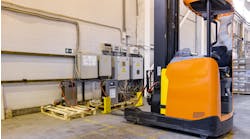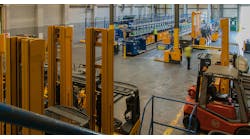Optimism is a pain to some folks, judging from some angry letters about my column recently. I said a while ago that the huge numbers of immigrants coming to America in recent years — both legal and illegal — was sure evidence that the United States is still the beacon of the age for people who want a better life. I also said that we were the leading manufacturing country and would stay the leader.
One reader said I was full of all kinds of stuff but common sense. Another said we are on the way to being a “Third World” country with a “Servile Economy” which is much worse than just a Service Economy, I assume.
So I’ve been hit twice here. Some readers say we’re doomed because of all the manufacturing work that is going to China and Mexico and wherever. A second criticism is I’m overvaluing the kind of folks we’re getting these days from overseas.
These new millions? Many are from Latin America and Asia. Anyone who hasn’t noticed that is living in some small towns in North Dakota. Yes, these new folks are not the same “stock” as the Founders and later immigrants. So what? The new arrivals, in my judgment, are becoming American just like our older ancestors. They arrive, work, learn English and quickly complain like I do about our irritating attempts at official multilingualism.
Industry, in fact, has been clamoring for more and more of some of these new young people because they often bring just the high tech support skills that manufacturing needs but cannot find in our own kids.
Are we going down as a manufacturing power? The stats in some sectors seem to say so, but only if the numbers are not looked at carefully. If we take a look, as have experts like Anand Sharma, president and CEO of TBM in Durham, North Carolina, at the nature of manufacturing today, we see a sourcing mechanism at work that makes it possible for companies — large and small — to compete in a global economy. We produce $10 trillion in goods and services every year. The “goods” part of that stunning number uses manufactured components and services from suppliers all over the world. As much as 42 percent of that huge economy is manufacturing, directly and indirectly.
In other words, it is good sense for manufacturers to be able to assemble their final products, whether it is subassemblies for cars or parts for dishwashers, from anywhere in the world where the skills, labor costs, and transportation costs are optimum. That is exactly what is happening, Mr. Sharma notes.
Additionally, the nature of modern manufacturing with its terrific quotient of high-tech input, means that the kinds of jobs and systems that lead to final products are not only radically different from decades ago but are frequently remote. That is, the work of the modern industrial company is largely done off site, not on the plant floor. The number of people involved in the production of a car is far more than the people on the assembly line and not confined to that line.
Software engineers, materials scientists, systems integrators, testing experts and systems and management consultants, as well as line workers for parts producers for any given car or dishwasher rolling off an assembly line, are spread all over the world. Millions of people, Americans and others around the world are involved in manufacturing and more and more of them do not work on the final assembly factory floor or any factory floor.
National defense? Clearly, when the migration of certain skills or technologies might harm our ability to defend ourselves, then we need the Government to intervene. “Let’s not be foolish about this,” Mr. Sharma explains. Ditto on unfair trade practices.
What about the integrity of the borders of the United States? They are porous and need to be carefully defended, especially since 9/11. That said, I said we should welcome these millions of newcomers just as we have welcomed others.
Why not? These new millions come from places where a sidewalk is a luxury. From all I have seen, their skills (often just what modern industry needs), their willingness — indeed eagerness to work, and their new patriotism — emerges with their gratitude in abundance.
Optimistic? What do you think?
George Weimer, contributing editor [email protected]


